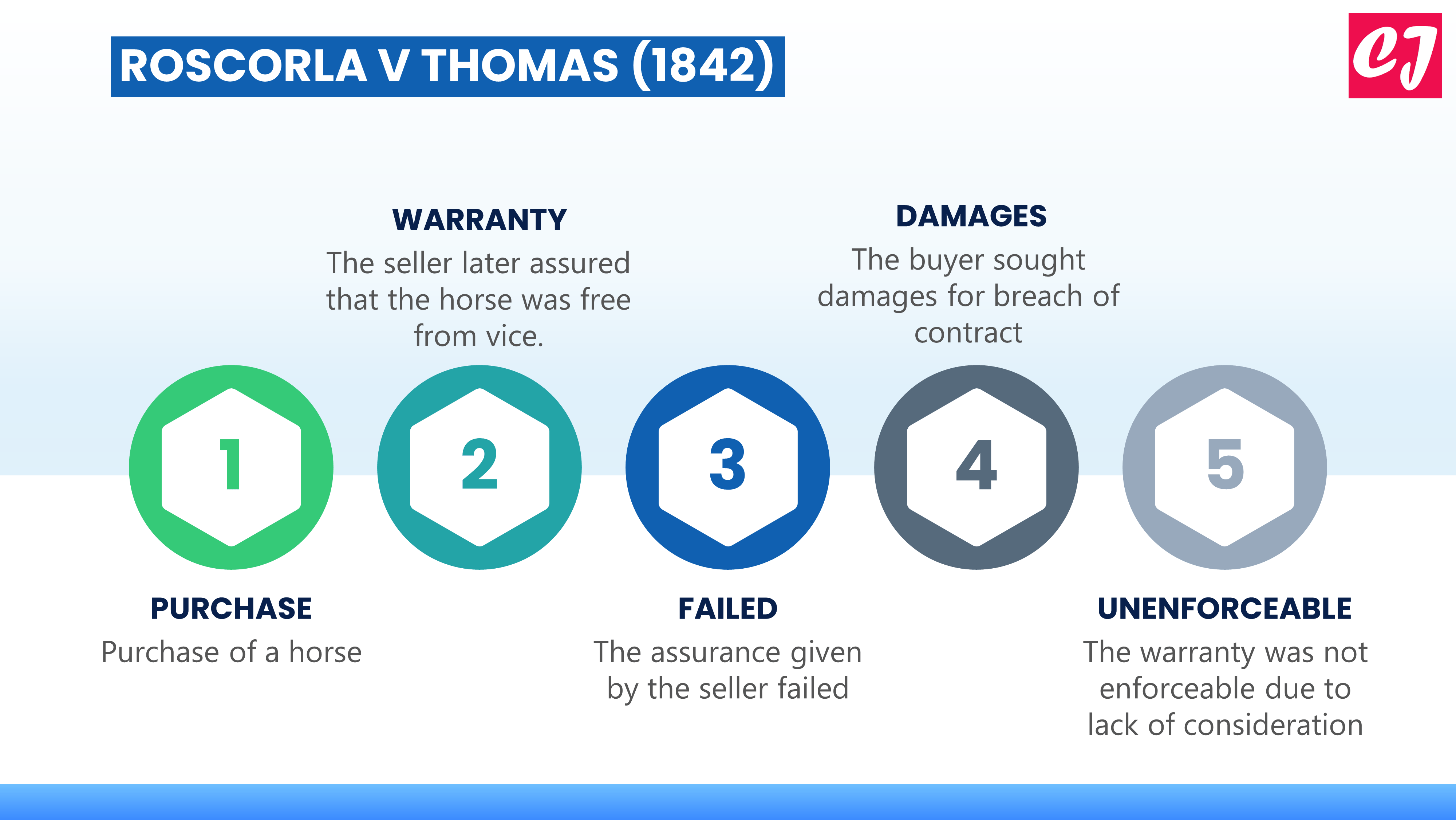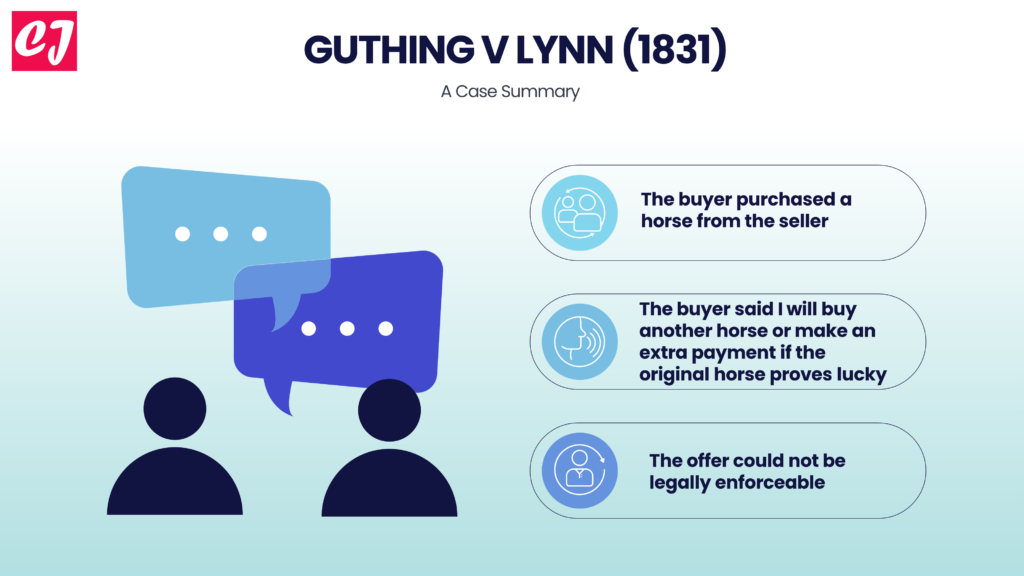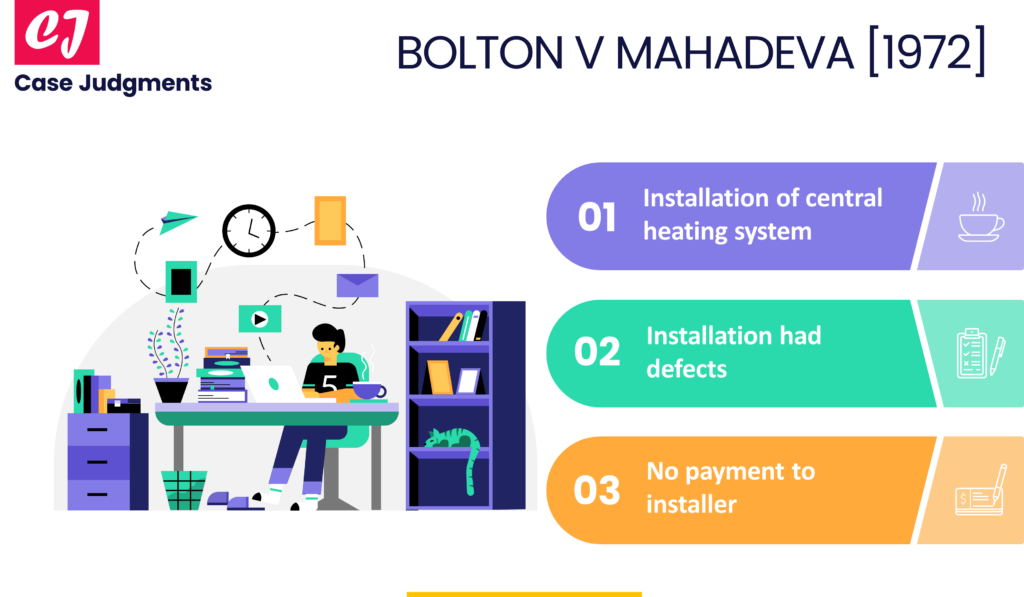
A Case Summary of Roscorla v Thomas (1842)
Case name & citation: Roscorla v Thomas (1842) 3 QB 234; [1842] EWHC QB J74; (1842) 114 ER 496
- Court and jurisdiction: Queen’s Bench, England and Wales
- Decided on: 30 May 1842
- The learned judge: Lord Denman C.J.
- Area of law: Consideration – past consideration
A Quick Summary
Roscorla v Thomas (1842) is a landmark case that threw light on the invalidity of past consideration. Here, it was held that after a horse had been sold, a warranty provided as to its soundness was not valid as it had no consideration in support thereof. Past consideration relating to the sale of the horse was not sufficient.
Given below are the case details.
What happened in Roscorla v Thomas?
1. Purchase of horse
In a typical sale transaction, the plaintiff purchased a horse from the defendant.
2. Warranty
Sometime after the sale was completed, the defendant assured the plaintiff that the horse was “sound and free from vice.”
3. False assurance
The assurance provided by the defendant proved to be false as the horse was found to be very vicious and unmanageable.
4. Legal issue
The plaintiff sought damages for breach of contract but was unable to sue the defendant based on this false assurance.
The question that arose was:
Was there good consideration for the promise that the horse was free from vice?
The Court found that the plaintiff had provided no consideration for this promise because the sale had already been completed before the warranty was given.
5. Breaking down the Court’s decision
The payment for the horse had already taken place, and it was considered past consideration. Past consideration is not valid in contract law because it is something that has already been completed and cannot be linked to a new promise made after the original one.
In this case, the warranty as regards the horse’s condition was made after the sale of the horse and thus, it could not be directly connected to the price paid for the horse. As the price paid for the horse could not be deemed a consideration for the warranty, the plaintiff had no grounds to sue the defendant on finding that the horse was not free from vice. The contract of sale had already been enforced and no fresh consideration was given for the warranty.
6. Conclusion
The warranty of the horse’s soundness had nothing new offered in exchange for it. Hence, it was not enforceable.
Quote from the case (Roscorla v Thomas)
“It may be taken as a general rule, subject to exceptions not applicable to this case, that the promise must be coextensive with the consideration. In the present case, the only promise that would result from the consideration, as stated, and be coextensive with it, would be to deliver the horse upon request.”
(As per Lord Denman C.J.)
Past consideration is no consideration
Roscorla v Thomas applied the basic principle that “past consideration is not good consideration.”
Consideration for a promise must be contemporaneous, meaning it should be performed or promised at the same time as the promise, and not something that has already been done in the past.
References:
- https://media.zambialii.org/files/judgments/zmhc/2010/38/2010-zmhc-38.pdf
- https://nashashibilaw.weebly.com/uploads/2/0/5/9/20597118/the_modern_law_of_contract.pdf
- https://www.bailii.org/ew/cases/EWHC/1842/J74.html
- https://www.hzu.edu.in/uploads/2020/10/97-contract-law-willan-publishing-2007.pdf
You might also like:
More from contract law:

